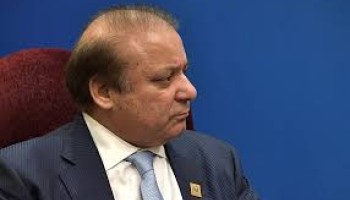Masood Arshad was hearing the case of Rana Sanaullah, a Punjab-based head of the opposition party Muslim League-Nawaz (PML-N), who had filed a bail plea after being arrested in early July on charges of maintaining ties to drug traffickers.
He gave the newly appointed prosecutor an hour to read about the case, and when court adjourned, he announced an end to the hearing.
“I have been transferred and cannot continue the case proceedings,” he told the defence lawyer before leaving the courtroom.
Judge Arshad later told media he would have pronounced his verdict that day, had he not received the message.
Sanaullah, who was critical of Pakistan’s Prime Minister Imran Khan, had been saying for months that the government was planning to arrest him.
His detention was followed by the arrests of a number of opposition figures, including former Prime MinisterShahid Khaqan Abbasi and Sharif's daughterMaryam Nawaz, both of whom were accused of graft.
The Ministry of Law and Justice said it never sent a WhatsApp message to the judge but followed a formal procedure when transferring him and two other judges on August 26.
The other two were hearing graft cases against family members of Nawaz Sharif, who is serving a seven-year sentence for corruption.
"This is a direct intervention by the government into the independence of the judiciary,” Azim Tarar, the lawyer of Sanaullah, told OCCRP.
"The prosecutor has been changed for the third time, and [the government] bought more time when the judge was transferred in the middle of the hearing, which is unprecedented and unfortunate," Tarar said.
Sharif's PML-N party spokesperson, Marriyum Aurangzeb, criticized the transfer of judges and described it as an attack against judicial independence.
"The prosecution failed to present a single piece of evidence against Sanaullah and instead the government removed the judge. Khan's government is using its authority to influence cases against the opposition PML-N leaders," she said.






